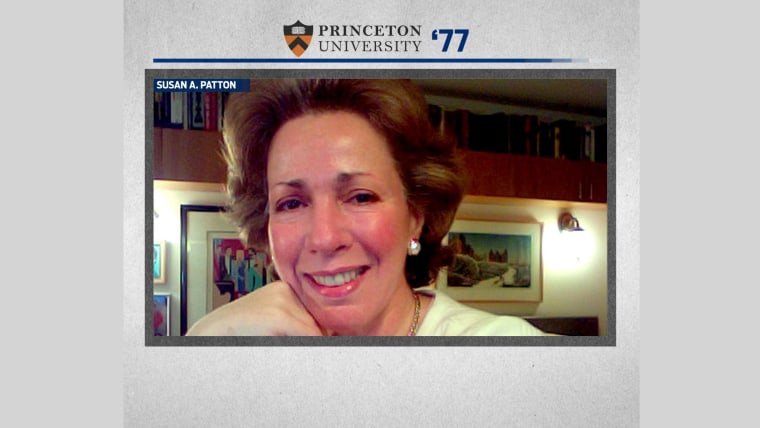Visit NBCNews.com for breaking news, world news, and news about the economy
When Susan Patton wrote an op-ed in The Daily Princetonian last week, she had no idea the controversy it would create. What she later described as "some good advice from a Jewish mother," has earned her the scorn of angry feminists everywhere.
Why? Because in 2013, you're not supposed to talk to modern young women at an elite liberal university about the value of getting married.
Patton, a pioneering Princeton class of 1977 grad herself, with two sons who also attend the school, advised the women of her Alma mater to make the most of their opportunities there and find a good, Princeton boy to marry.
"Take a good look on campus now for a potential life partner," she told CNN after her letter sparked outrage from women who cringed at the perceived elitism and provincial outlook in Patton's kindly advice. "You have access to this extraordinary community of extraordinary people. Find a man who isn't threatened by your capacity for greatness."
Yes, that sounds like someone who wants to keep women in big skirts and baking aprons. Nevertheless, she was accused of an "excruciatingly retro understanding of relationships" and "pushing women to define themselves by their spouses."
Admittedly, Ivy League educations don't guarantee good character. I went to an Ivy League school where many of the young men I met weren't fit to be good lab partners let alone good husbands.
But Patton's advice is also an acknowledgment of a reality that feminists don't seem to want to believe. We are defined by our spouses. The federal government, the tax code, mortgage lenders, health care providers and insurance agents all take great interest in who our spouses are. Society, too, takes interest, as any number of gay marriage advocates will tell you. Getting married is, importantly, redefining yourself as "someone's spouse."
But what's so subversive and retro about finding a suitable partner from a pool of talented, ambitious—and geographically accessible—young co-eds? Isn't that what we do later when we try dating someone from work, dating within our social circles, or finding someone online who meets our customized criteria of height, weight, hairline and income? How is that experience any less elitist?
Patton wasn't telling women to put marriage ahead of their careers, but just the opposite...to marry someone as smart as they are so that their careers can blossom.
Who a woman marries, if she decides to, is one of the most important decisions she can make. And trust me, it's something that successful women like Hillary Clinton, Sheryl Sandberg and eventually even Gloria Steinem took very, very seriously.
But the idea of "marrying well" or "marrying up" isn't a conversation for polite, liberated circles.
A woman's right not to marry, or to marry another woman? That's another story. These pursuits are praised and celebrated as righteous revolts against paternalism, parochialism and conservatism. A woman's right to choose, her right not to start a family before she actually wants the responsibility that comes with sexual activity? Also fantastic and fabulous and worthy of staunch defending.
But for passing on some motherly advice to young women, to find a nice boy who is worthy of their affection, this is the leap too far. This is the radical insult to womanhood. Oh, how feminism has fallen.
